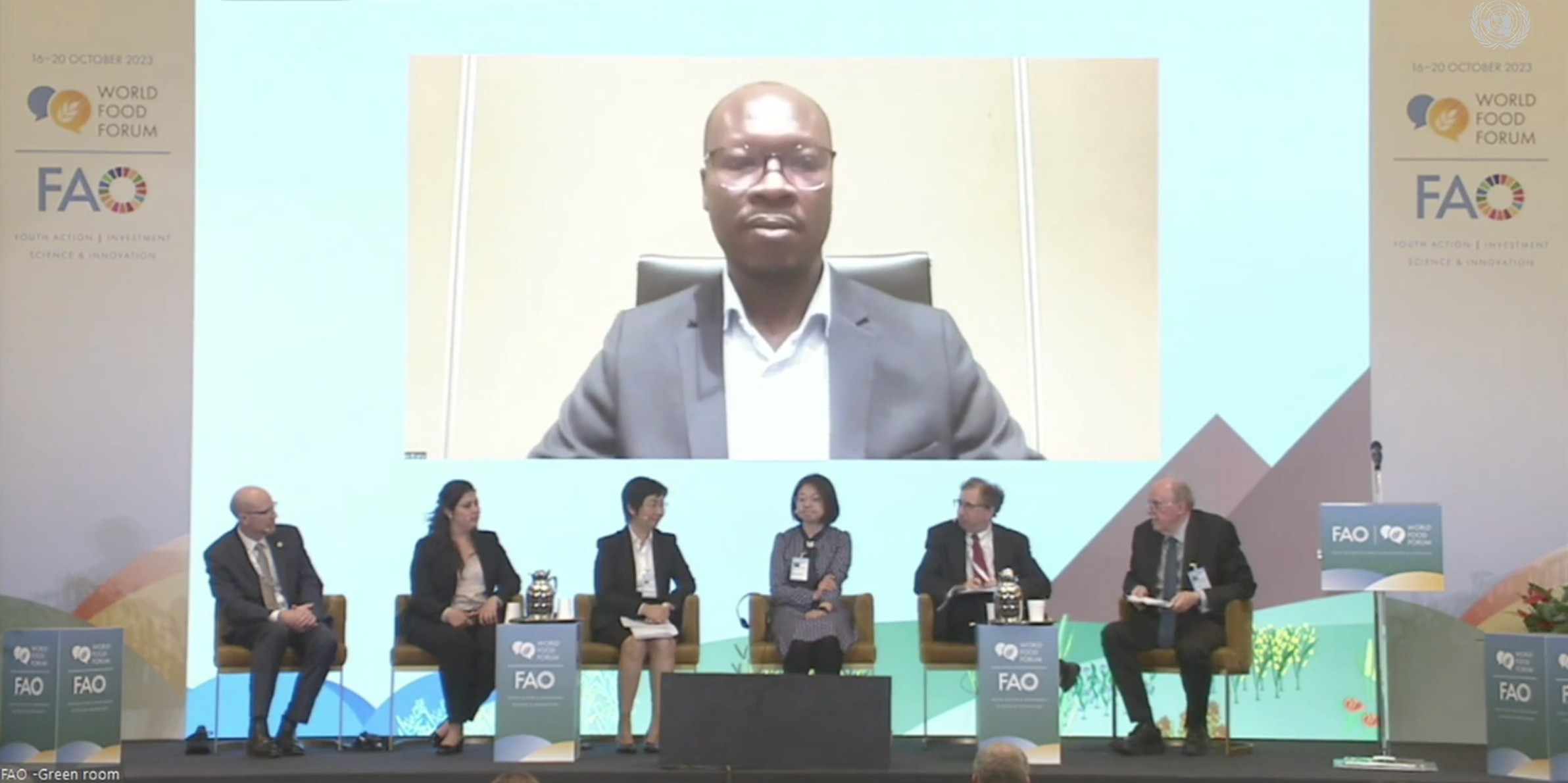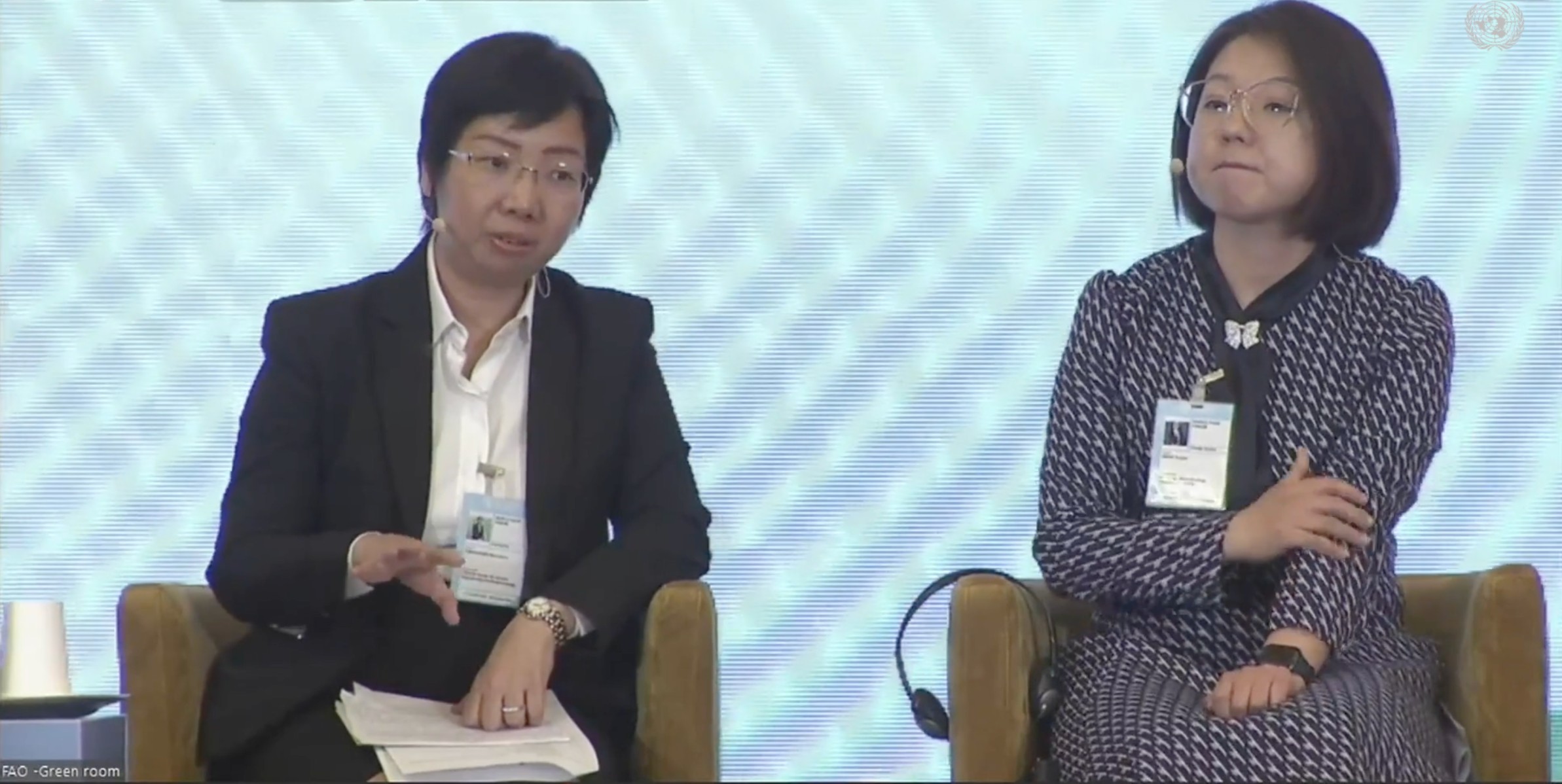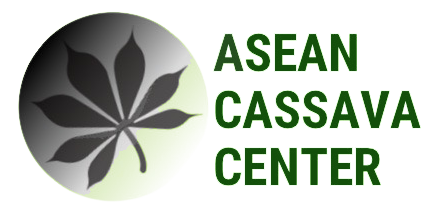FAO Science and Innovation Forum 2023: Thailand's Bio-Circular Green Economic Model in the Cassava Industry

Dr. Warinthorn Songkasiri, Head of the Biochemical Engineering and Systems Biology Research Group at BIOTEC and Director of ASEAN Cassava Centre, played a significant role as a speaker at the FAO Science and Innovation Forum (SIF) 2023, held from October 16 to October 20, 2023. This year's forum revolved around the theme "Science and Innovation for Climate Action," aligning with the overarching World Food Forum (WFF) theme, "Agrifood systems transformation accelerates climate action."
During the FAO SIF 2023, Dr. Warinthorn actively participated as a panelist in the high-level session titled "Bioeconomy: the catalyst for agrifood systems transformation," which took place on the afternoon of October 19, 2023. This session brought together esteemed speakers and leading technical experts from various sectors, including government, academia, civil society, and the private sector. Together, they delved into the critical link between fostering a sustainable bioeconomy, driven by innovation, and the transformation of agrifood systems. The event set the stage for a shared vision, unified principles, and a collaborative approach that aligns with multilateral commitments and advances a global bioeconomy partnership.

Dr. Warinthorn's presentation centered on the Bio-Circular-Green (BCG) economic model, championed by the Thai government as a new paradigm for achieving sustainability and economic growth. The BCG model prioritizes four key industries: agriculture and food, medical and wellness, bioenergy, biomaterials and biochemicals, and tourism and the creative economy. Thailand, in line with its commitment to achieving carbon neutrality by 2050, has made significant strides in the bioeconomy sector. This journey began with the establishment of the National Center for Genetic Engineering and Biotechnology (BIOTEC) under the National Science and Technology Development Agency (NSTDA) in 1983. Thailand's continued investments have resulted in the development of a robust bioeconomy ecosystem, including pre-commercialized biorefinery facilities at the Eastern Economic Corridor for Innovation (EECi). These facilities enable the transformation of biomass, such as sugarcane, cassava, or palm oil, into high-value biofuels, biomaterials, and biochemicals. The country has also seen the establishment of national biopharmaceutical facilities at various universities and research institutes, furthering the scope of its bioeconomy initiatives.
A noteworthy achievement within the BCG model is the sustainable cassava starch program, a collaborative effort involving a research institute (BIOTEC), a university (King Mongkut’s University of Technology Thonburi - KMUTT), and the private sector (Thai Tapioca Starch Association - TTSA). This initiative strives to introduce sustainability and circularity concepts into the industry while showcasing Thailand's unique non-GM and gluten-free cassava. The program integrates science and innovation throughout the value chain, encompassing cassava cultivation, cassava starch production, waste treatment and management, and high-value product generation. Most recently, a roadmap to achieve net-zero emissions for the cassava starch industry was declared, with an ambitious goal to reduce greenhouse gas emissions by 50% by 2030, from 2.17 million tons CO2eq to 1.09 million tons CO2eq. Furthermore, at the regional level, a Community of Practice (CoP) focusing on sustainable cassava has been systematically established, emphasizing knowledge dissemination, technological innovation, and solution provision.

On behalf of BIOTEC and ASEAN Cassava Centre, we extend our heartfelt gratitude to our partners, both nationally and internationally. These include organizations under the Ministry of Agriculture, the Ministry of Higher Education, Science, Technology and Innovation, the Ministry of Industry, the Thai Tapioca Development Institute, the Thai Tapioca Starch Association, the Thai Biogas Trade Association, King Mongkut’s University of Technology Thonburi, Kasetsart University, UNIDO, GIZ, Mekong-Republic of Korea Corporation Fund, Lancang-Mekong Cooperation Special Fund (LMCSF), and our esteemed partners in Cambodia, Lao PDR, Myanmar, Vietnam, Thailand (CLMVT), Indonesia, and the Republic of China. We eagerly look forward to expanding our global network in the pursuit of sustainability and innovation.
You can access the complete event recording by following this link: [https://media.un.org/en/asset/k1n/k1n9o4wfr4].
